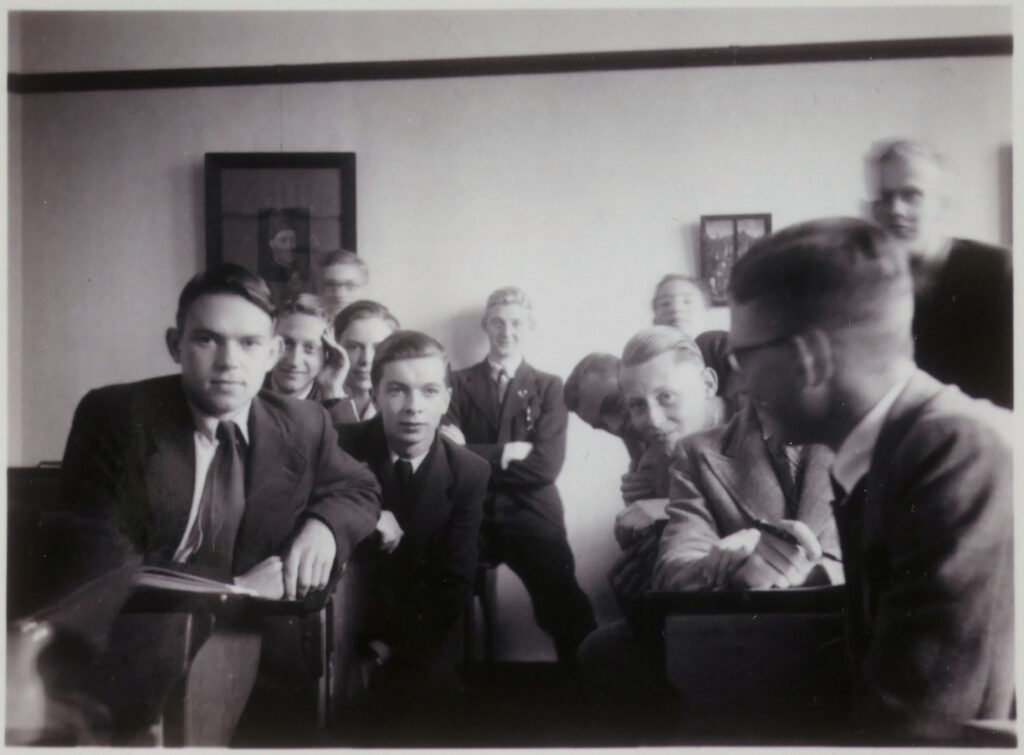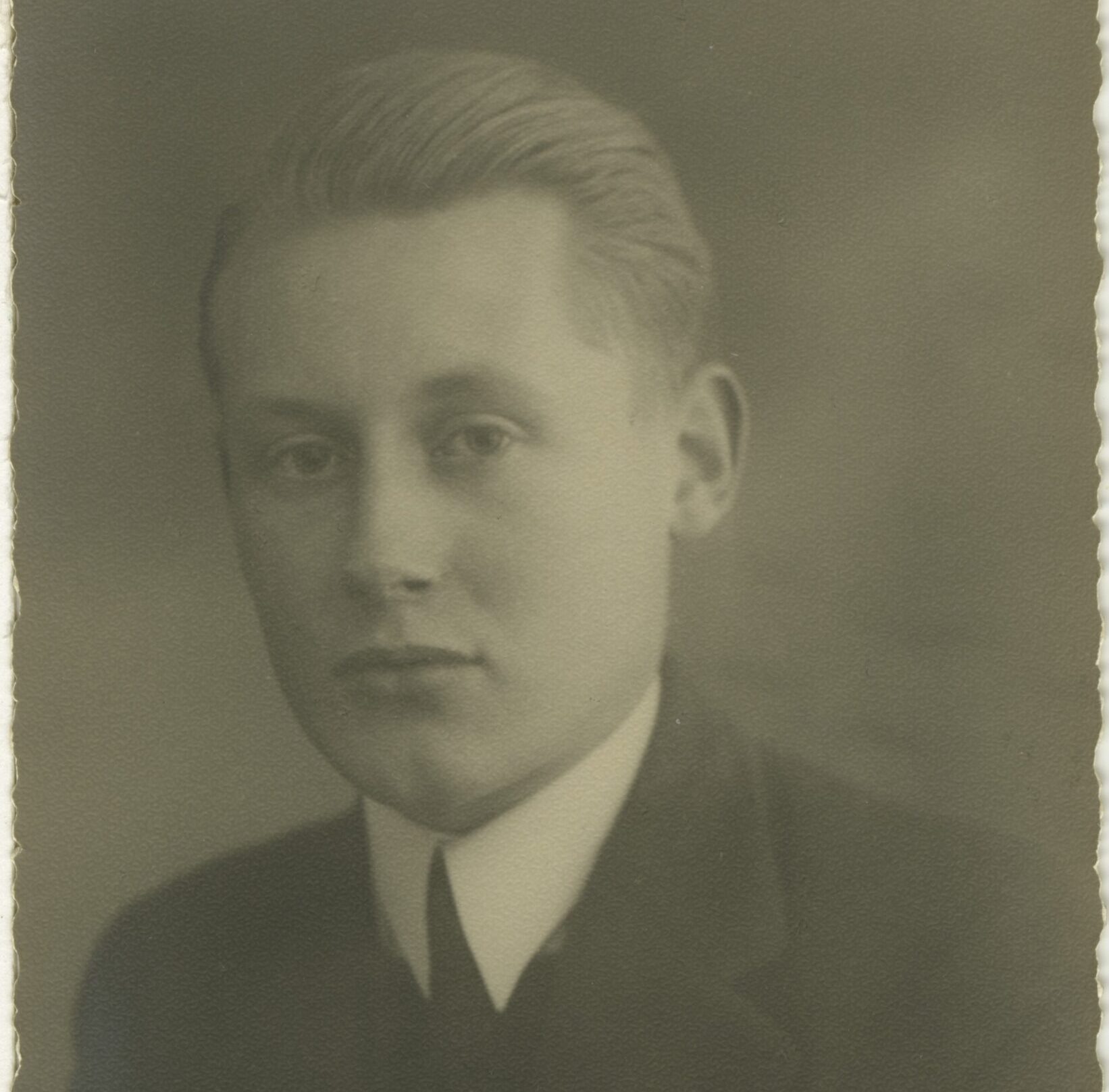When Nazi Germany invaded the Netherlands on 10 May 1940, Ernst Sillem was 16 years old. From the start, he tried to thwart the occupier.
School boy Ernst Sillem felt that most Dutch people were not doing enough to resist the German occupiers. In 1940, normal life seemed to go on as usual. For Ernst, that was incomprehensible. “Something must be done!” he thought. One evening in late January 1941, he quietly climbed out of his bedroom window with a flashlight, paint and a brush. He walked to his school in Baarn, where he broke a window and crawled inside. In the gleam of the flashlight, he painted messages on the walls: “Out, Krauts” and “Don’t be passively anti-German, take action!!!!”
The police launched an investigation. The highest classes of his school had to take a writing and spelling test to find out who was responsible, but the perpetrator was never found. The story of the act spread throughout the Netherlands. “I was extremely happy that that message circulated throughout the Netherlands, because that was the intention! I wanted there to be movement in the anti-German mentality.”
Ernst did not stop at this kind of action. Together with his friend Jaap van Mesdag, he wanted to go to England to fight against Nazi Germany. Using a canoe, they tried to cross the North Sea in the night of 31 August to 1 September 1942. Ernst and Jaap were caught up in bad weather and were rescued by a German ship in the nick of time. They were captured and instead of England, they ended up in several prisons and concentration camps. After 2.5 tough years, on 29 April 1945 they were finally liberated from the Dachau concentration camp.
Ernst was not the only person who tried to reach England during the war. About 2,000 Dutch people reached Engeland, including at least 48 women. Over 200 people did not survive these attempts. Most of those who reached England, joined the Dutch or British secret service, the British army or the Prinses Irene Brigade, the army formed by the Dutch government in exile.

© Dutch Resistance Museum

© Beeldbank WO2 – NIOD


